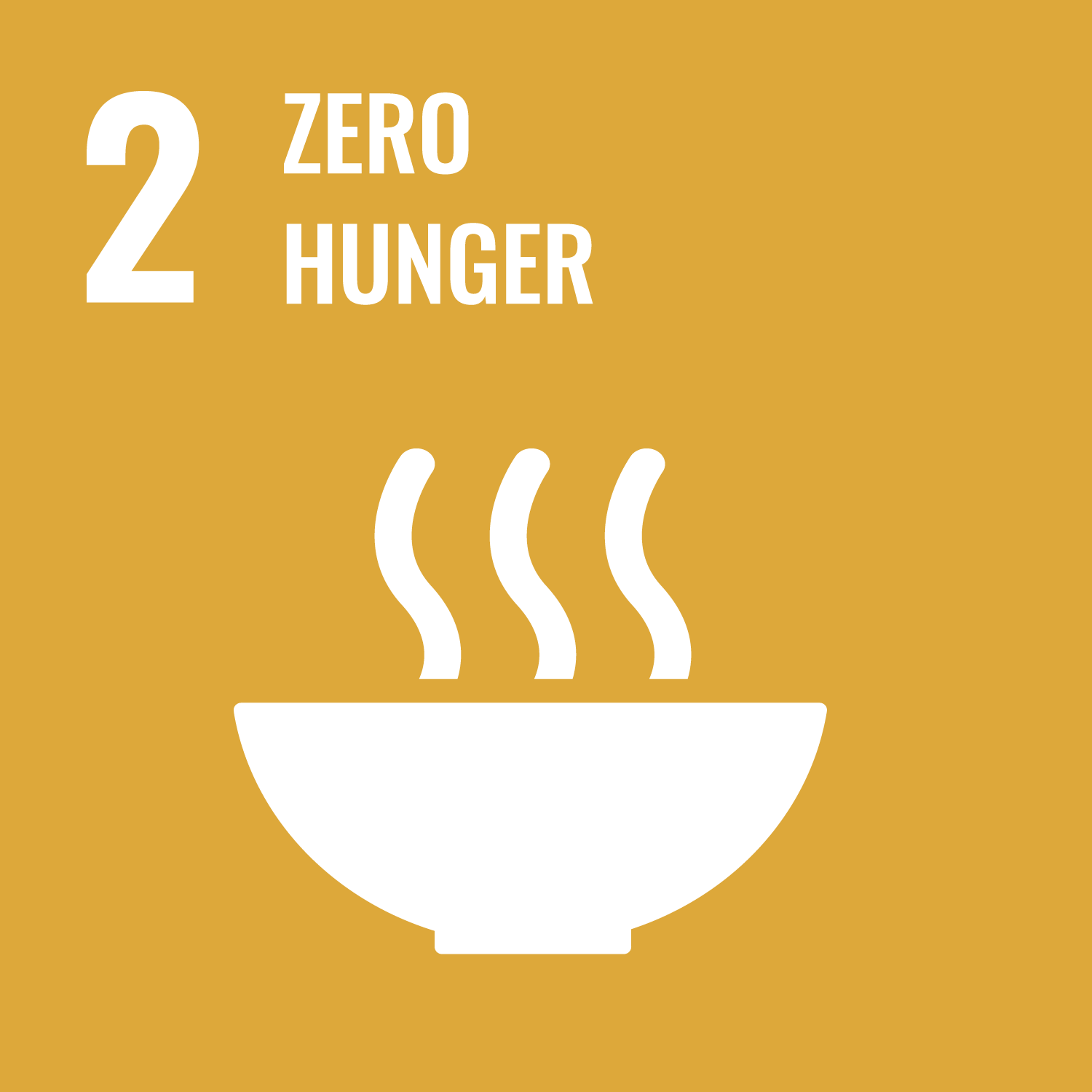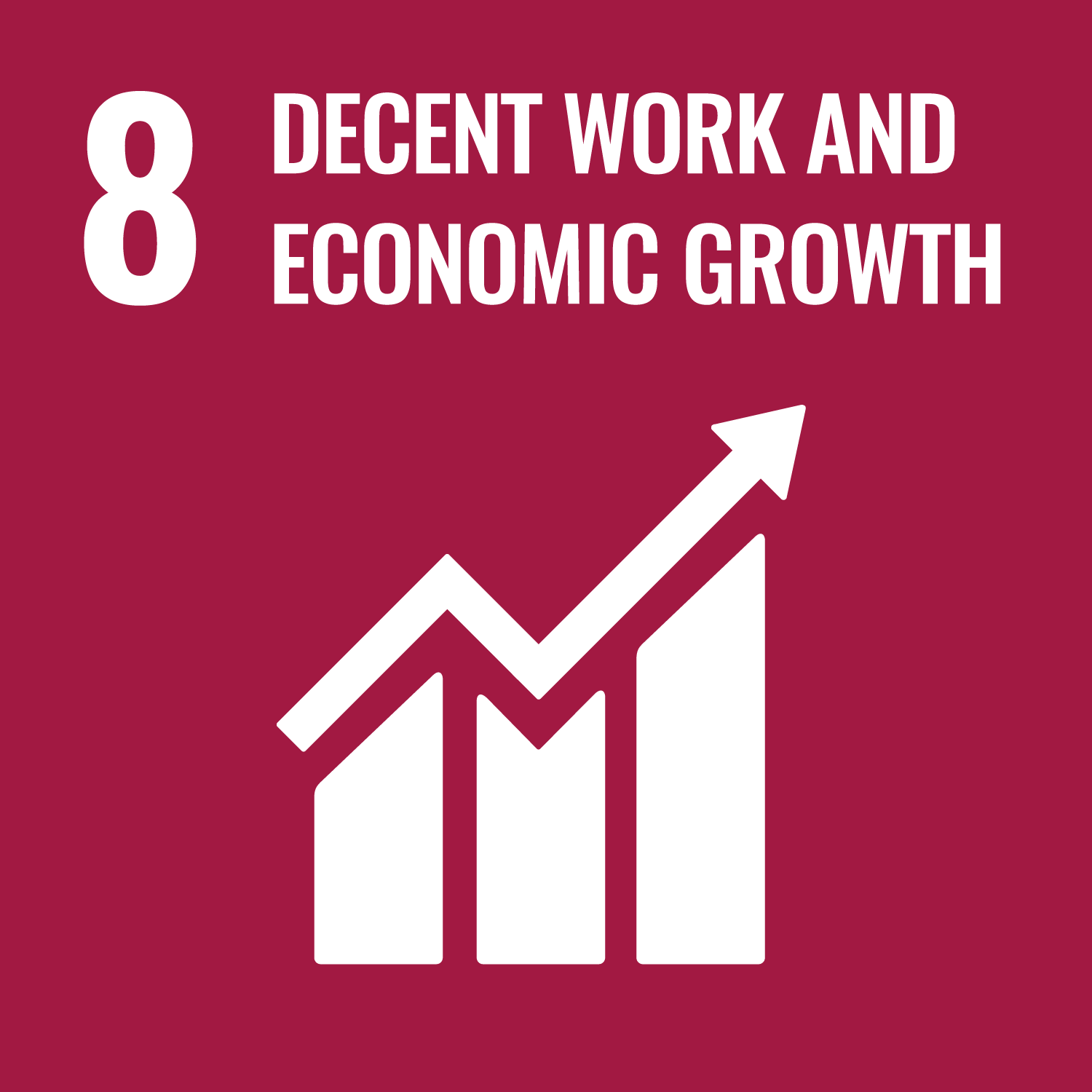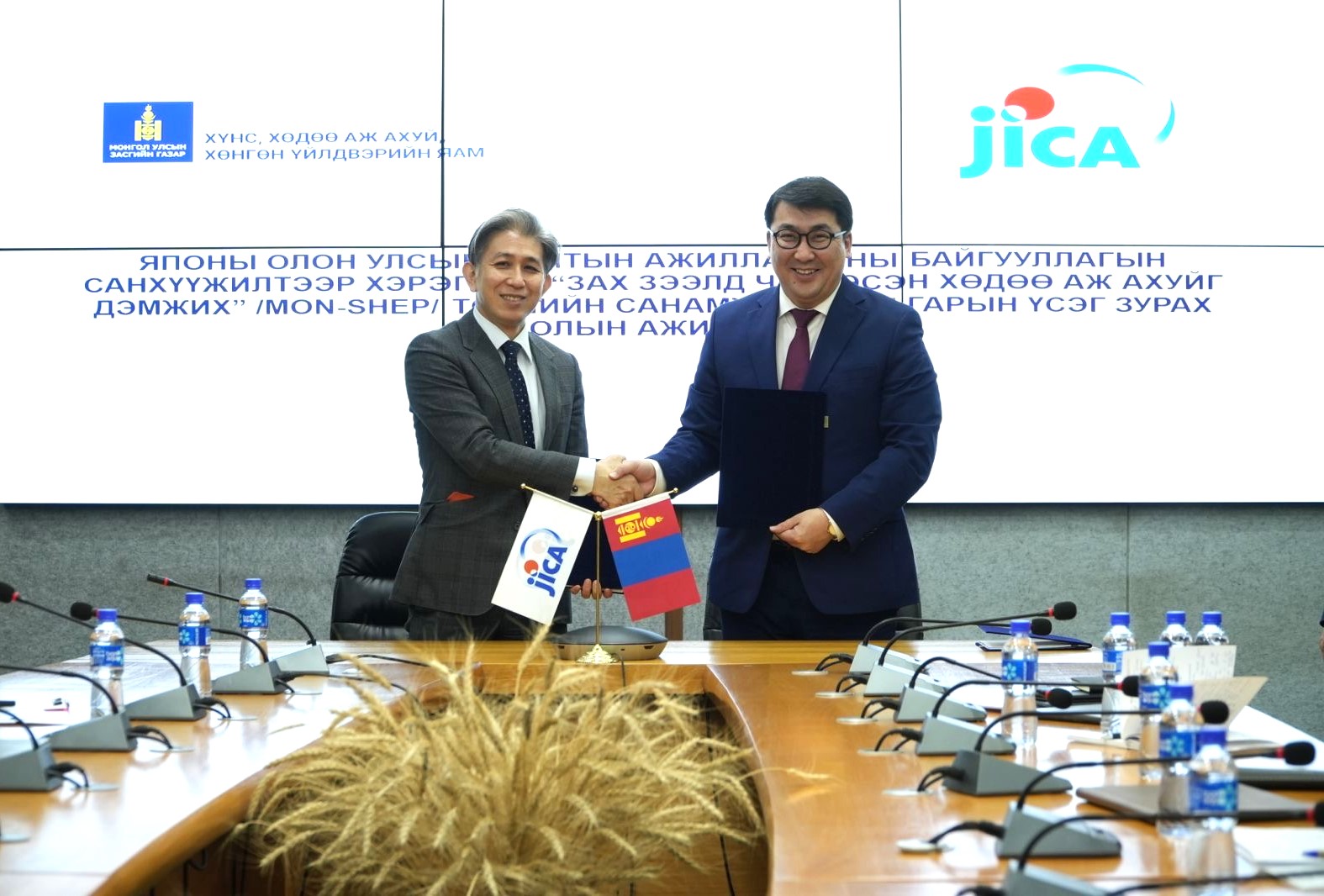Signing of Record of Discussions with Mongolia: Contributing to the strengthening of vegetable supply and security through a market-oriented agricultural promotion approach tailored to regional characteristics


2024.02.05
On January 30, the Japan International Cooperation Agency (JICA) signed a Record of Discussions with the Government of Mongolia in Ulaanbaatar for The Project for Promoting the Market-Oriented Agriculture (MON-SHEP), a technical cooperation project.

Signing Ceremony
The agro-pastoral industry in Mongolia is the country’s key industry, accounting for approximately 11% of GDP (in 2022), second only to the mining industry, and employing about 30% of the working population.
In recent years, amid the deceleration of the country's economic growth due to the impact of the decline in mineral prices, the agro-pastoral industry has been positioned as a key sector in Mongolia's industrial diversification. However, due to the country’s long, severe winter season, the period in which fresh vegetables can be grown is limited. Other than potatoes, 40% of Mongolia’s fresh vegetables are imported from China and other countries, and the vegetable self-sufficiency rate has remained low for many years. About 80% of vegetables are produced by small and medium-sized farmers on less than three hectares, and in order to improve the domestic self-sufficiency rate, it is necessary to improve the cultivation techniques of these farmers and establish an effective system that contributes to expanding vegetable production. However, at present, the traditional open-field farming method is the mainstay, and the yield and types of vegetables that can be grown are limited. In order to overcome this situation, the Mongolian government has formulated the "National Policy on Food and Agriculture (2016-2025)" and aims to achieve 100% self-sufficiency in vegetable farming by 2025.
Through a series of activities based on the Smallholder Horticulture Empowerment and Promotion (SHEP) approach(※), tailored to the characteristics of the target regions, this project aims to establish an effective mechanism for promoting market-oriented agriculture that will contribute to the promotion of domestically produced vegetables. This will involve transferring technology for planned vegetable production and disseminating methods that utilize facilities to extend the cropping season, such as greenhouses and storage, as well as providing equipment for cold-weather measures, to small and medium-sized farmers and agricultural extension workers.
Through such cooperation, the project will also contribute to the achievement of SDGs Goals 2 (Zero Hunger) and 8 (Decent Work and Economic Growth).
(※):The SHEP (Smallholder Horticulture Empowerment and Promotion) approach is the agricultural extension method that transforms farmers' mindsets from "grow and sell" to "grow to sell." This began in 2006 as a technical cooperation project between the Kenyan Ministry of Agriculture and JICA aiming to support an increase in farmers' income through market-oriented farming techniques and improvements in sales methods. In Kenya, this approach doubled the incomes of 2,500 small farmers in just two years (June 2007-October 2009). JICA is working to promote and implement this approach around the world.
Details for the project are provided below.
| Country | Mongolia |
|---|---|
| Project title | The Project for Promoting the Market-Oriented Agriculture (MON-SHEP) |
| Planned implementation period | 48 months |
| Executing agency | Ministry of Food, Agriculture and Light Industry |
| Target region | Ulaanbaatar City, Selenge Province, Darkhan-Uul Province, Dundgovi Province, Uvurkhangai Province, Tuv Province, and Zavkhan Province |
| Specific project details (provisional) | ・Establish a system to implement the SHEP approach in accordance with regional characteristics. ・Improve the capacity of agricultural extension workers and relevant institutional representatives to implement the SHEP approach. ・Provide technical guidance to target farmers based on the SHEP approach. ・Formulate and propose agricultural extension strategies to promote market-oriented agriculture. |
scroll